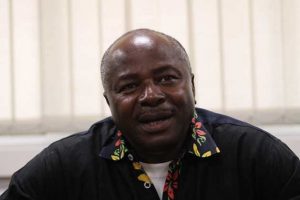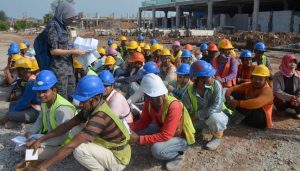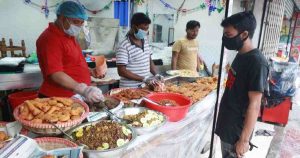Jason Burke in Delhi and Zaheena Rasheed in Malé
Tens of thousands of immigrant workers employed on luxury resorts in theMaldives have been told they will be ordered to leave the island nation if they go ahead with a planned protest against alleged discrimination and violence.
The demonstration has been organised following a series of attacks on immigrant workers, many of whom are employed on high-end resorts serving western tourists. Two men from Bangladesh have died from injuries in the last week.
Mohamed Anwar, the controller of immigration and emigration, said any protest by migrant workers would breach the terms of their work permits, and participants’ visas would be cancelled without further warning.
“The immigration department will not hesitate in penalising those who participate in protests,” Anwar said.
On Thursday the economic ministry repeated the threat. “We believe the planned protest by migrant workers is a premeditated attempt to undermine [the] Maldivian economy and businesses,” it said.
Last year’s national census found there were 58,683 migrant workers in the Maldives, of whom more than a third worked on luxury resorts. More than one million foreigners travelled to the Maldives last year.
A US government report has said the number of “documented and undocumented” foreign workers in Maldives could be as high as 200,000. Most are from India and Bangladesh.
Marouf Zaki, of the Tourism Employees Association of Maldives, said: “The current migrant workforce is very important for the economy but is facing a very worse situation. We are calling for a peaceful demonstration. We believe they have full rights to do that. To protest is a universal right.”
Ahmed Tholal, vice-president of the the Maldives’ human rights commission, said the country’s constitution guaranteed anyone on Maldivian soil the right to protest. “A clause in a migrant worker’s contract cannot override the constitution,” he said.
Tholal said the recent spate of attacks were “hate crimes” and there was a background of entrenched discrimination and “inhuman treatment” of migrant workers in the Maldives, who he said “make an immense contribution to the economy” but had no one to defend them.
The US state department’s Trafficking in Persons report last year claimed that migrant workers suffered forced labour, confiscation of identity and travel documents, withholding or nonpayment of wages, and debt bondage.
The report criticised local authorities for failing to “fully comply with the minimum standards for the elimination of trafficking”, though it praised ongoing efforts to tackle the problem.
“The government [has] passed its first anti-trafficking law, opened its first shelter for trafficking victims, distributed pamphlets about rights to migrant workers in a number of other languages, blacklisted some companies for fraudulent recruitment practices, and convicted a trafficker, reportedly the first such conviction in Maldives,” the report said.
One 35-year-old migrant worker from Bangladesh, who said he would attend the protest despite the ban, said the community was “afraid to go out on the streets, they are stabbing us, beating us”.
The Bangladeshi high commissioner in the Maldives, Sarwar Hossain, said he had asked workers from his country not to demonstrate after receiving assurances from ministers, senior policemen and the president, Abdulla Yameen, that security for expatriate workers in the Maldives would be improved.
The island nation has been troubled by political instability in recent years. Mohamed Nasheed, the human rights and climate change campaigner who became the first democratically elected leader of the Maldives at polls in 2008, wassentenced to 13 years in prison this month.
Countries including India and the US have expressed concern about Nasheed’s treatment and trial. – The Guardian, UK




